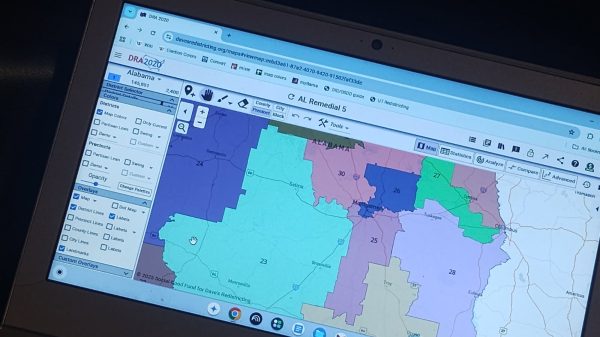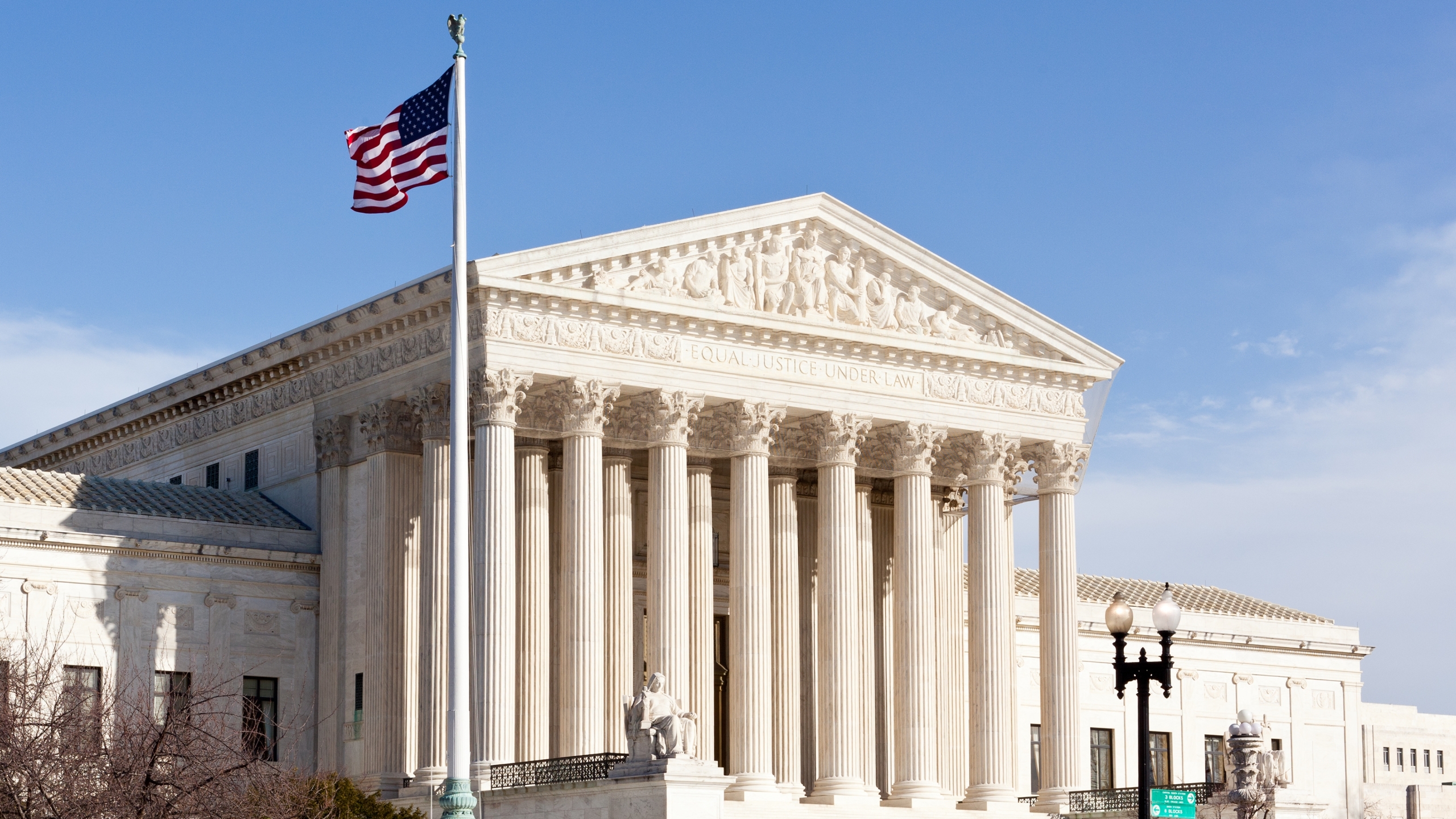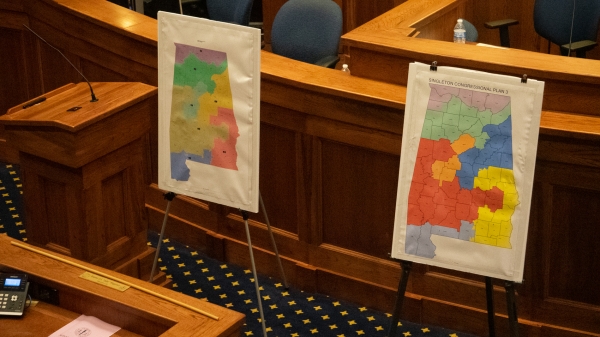A surprise 5-4 ruling by the U.S. Supreme Court that Alabama must redraw its Congressional district map to include two districts with significant portions of Black voters drew comment from all corners of the political world Thursday.
Alabama Democrats celebrated the surprise victory Thursday as they had addressed the issue with the map during the 2021 redistricting session.
“(Thursday’s) decision by the US Supreme Court to strike down Alabama’s Congressional map vindicates the rights of voters to have the opportunity to elect candidates of choice throughout our state,” said House Minority Leader Anthony Daniels, D-Huntsville. “During a severely short and limited mapdrawing process, our Caucus spoke at length about our view of the law and provided ways the state could craft at least two districts that reflect fair political opportunities for African American voters. We are therefore pleased that the Supreme Court affirmed the decision of the unanimous district court which found the Alabama maps were discriminatory. We stand ready to participate meaningfully with our colleagues to create a new map that fully complies with the law.”
Daniels may have that opportunity sooner rather than later, as Sen. Dan Roberts, R-Mountain Brook, told ALDailyNews Thursday to expect a special session soon.
Secretary of State Wes Allen, who is named as the defendant in the lawsuit, said he is disappointed in the result.
“I am disappointed in today’s Supreme Court opinion but it remains the commitment of the Secretary of State’s Office to comply with all applicable election laws,” Allen said in a statement.
Meanwhile, Attorney General Steve Marshall said the fight isn’t over.
“The Court made clear that its ruling was based only on the preliminary injunction record compiled in just a few weeks before the January 2022 district court ruling,” Marshall told 1819 News Thursday. “The State is still entitled to put on our full case at trial, and we are confident that the evidence will make clear that voters in Alabama, regardless of their race, have the same opportunity as any other members of the electorate to participate in the State’s political processes and elect representatives of their choice.”
Although it’s true that the case will continue on to a full trial, the U.S. Supreme Court made it clear that the state’s current map fails the “Gingles test” that is used to determine violations of Section 2 of the Voting Rights Act, and it is unconvinced of a new benchmark argued by the state.
“The centerpiece of the State’s effort is what it calls the ‘race-neutral benchmark,'” the opinion states. “The theory behind it is this: Using modern computer technology, mapmakers can now generate millions of possible districting maps for a given State. The maps can be designed to comply with traditional districting criteria but to not consider race. The mapmaker can determine how many majority-minority districts exist in each map, and can then calculate the median or average number of majority-minority districts in the entire multi-million-map set. That number is called the race-neutral benchmark. The State contends that this benchmark should serve as the point of comparison in Section 2 cases.
“As we explain below, we find Alabama’s new approach to Section 2 compelling neither in theory nor in practice.”
The Alabama NAACP called the Court’s decision a “historic victory for voters rights.”
“Since the U.S. Supreme Court’s decision with Shelby County v. Holder, the absence of federal oversight in this voting cycle resulted in the passing of maps that diminished the voices of individuals of color,” the NAACP said in a statement. “Lawmakers must continue to ensure that voters of color are not denied the opportunity to participate in the electoral process. This decision sends a clear message to them.”
ALGOP Chairman John Wahl hinted that lawmakers could still draw a map that favors the Republican Party, and could possibly lead to all seven districts being won by Republicans.
“The U.S. Constitution is clear that drawing district lines – as well as redistricting – are the responsibility of state legislatures,” Wahl said in a statement. “Regardless of our disagreement with the Court’s decision, we are confident the Alabama Legislature will redraw district lines that ensure the people of Alabama are represented by members who share their beliefs, while following the requirements of applicable law. The Alabama Republican Party remains committed to competing in every district, and will work hard to win all seven Congressional seats with candidates that reflect their communities and the values of the State of Alabama.”
U.S. Attorney General Merrick Garland said the opinion is a win for voting rights and asked Congress to give the Department of Justice more tools to go after gerrymandering.
“(Thursday’s) decision rejects efforts to further erode fundamental voting rights protections, and preserves the principle that in the United States, all eligible voters must be able to exercise their constitutional right to vote free from discrimination based on their race,” Garland said. “The right to vote is the cornerstone of our democracy, the right from which all other rights ultimately flow.
“Over the past two years, the Justice Department has rededicated its resources to enforcing federal voting rights protections. We will continue to use every authority we have left to defend voting rights. But that is not enough. We urge Congress to act to provide the Department with important authorities it needs to protect the voting rights of every American.”
Evan Milligan, executive director of Alabama Forward and a lead plaintiff in the case, said the fight is far from over.
“Our Constitution does not explicitly establish the right of voting-age citizens to vote and have their ballots counted – this must change,” Milligan said. “In order for our traditions of freedom and democracy to continue serving the people, we must have explicitly defined voting rights incorporated into our constitutions and policies at all levels. Achieving these goals will require deep community work that will take decades. This movement will ensure the survival of our communities, the judiciary involved in yielding today’s opinion and our country at large.
“Moving forward, we will continue organizing to ensure that all states draw accurately representative maps that include the say of Black and Brown communities.”



















































